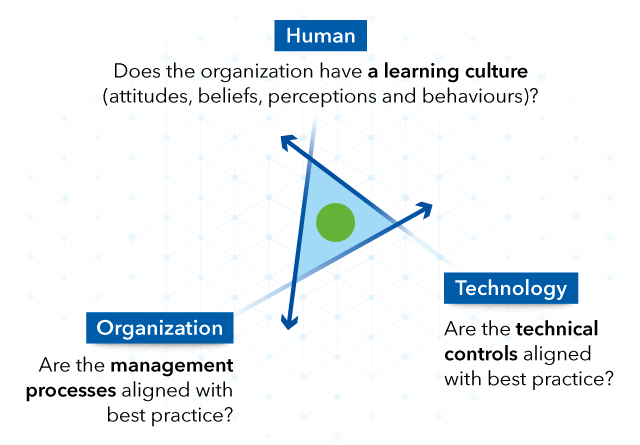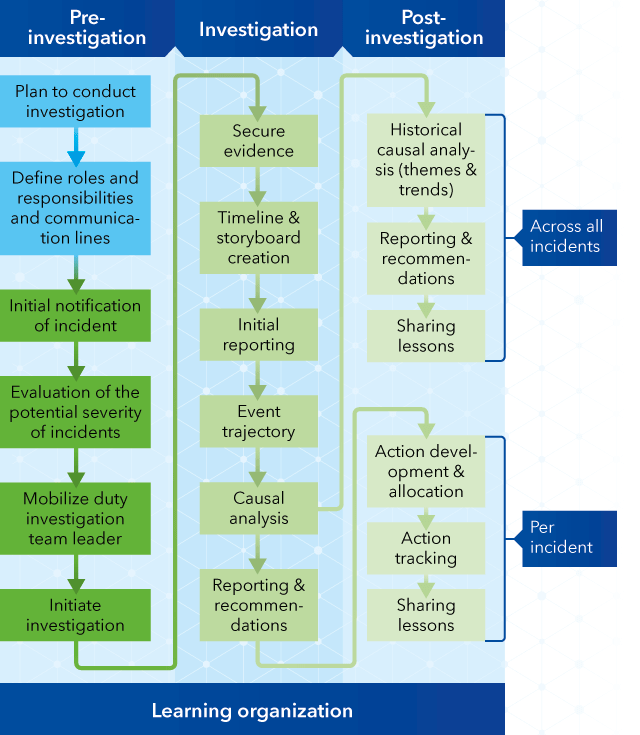Fenna van de Merwe, Principal Consultant, DNV GL, describes how an efficient incident investigation can provide significant benefits. Ms. van de Merwe notes that DNV GL has used human, organizational and technical dimensions in order to help Carnival establish a proper investigation process.
Reaping the full benefits of incident investigations is a complex challenge. DNV GL integrated human, organizational and technical dimensions, also known as its “HOT” approach, to help Carnival Corporation & plc develop a more efficient investigation process with outcomes that have greater impact.
[smlsubform prepend=”GET THE SAFETY4SEA IN YOUR INBOX!” showname=false emailtxt=”” emailholder=”Enter your email address” showsubmit=true submittxt=”Submit” jsthanks=false thankyou=”Thank you for subscribing to our mailing list”]
DNV GL’s experience from a range of hazardous industries suggests that while most companies are relatively confident about their incident notification and lesson-sharing systems, they often struggle with the critical step in between: the effectiveness of their investigation process.
The maritime industry takes a predominantly reactive approach to high-frequency safety events and human error – action is typically taken after the damage has occurred, rather than proactively. The industry is still learning to understand that reducing occupational accidents has little or no effect on the number of major accidents with more complex causes and more severe consequences. Limiting the focus of attention to the symptoms of malfunctioning systems, or blaming someone who made a mistake, has little effect on the more underlying causes of an accident.
Identifying root causes of incidents
What is needed is a standardized, systematic and traceable investigation methodology that allows companies to identify the root causes of incidents and derive the necessary cultural changes. The incident investigation process should be embedded in a safety management system that unearths underlying causes, explaining both how and why processes in the safety management system succeed or fail. When this is clear, systemic measures for improvement can be identified.
Because of its sheer size and global reach, Carnival Corporation & plc (Carnival), the world’s largest leisure travel company, plays an important role in setting safety standards for the industry. This includes learning from near misses, incidents and accidents to prevent reoccurrence. When performing incident investigations, Carnival was facing the same challenges many in the maritime industry struggle with.
Richard Brilliant, Chief Audit Officer heading Carnival’s Risk Advisory & Assurance Services (RAAS), explains: “We understood that investigations are a powerful tool for learning and improving. Taking a critical look at our processes, we realized there were opportunities to reduce the amount of time it took to perform investigations, to make sure the content and format of reports were appropriate, and that we had a five-star organizational and process model that supported investigator competency and investigation quality.”
HOT dimensions of safety management
In pursuing its continuous improvement philosophy, Carnival launched an initiative to assess their incident investigation process against best practice, with an emphasis on identifying the root causes of incidents. Asked to assist Carnival in this process, DNV GL offered its “HOT” approach that highlights the interdependencies between the human (H), organizational (O) and technological (T) dimensions to optimize management performance and foster a mature organizational culture.

In this scheme, the management system assessment (O) is based on DNV GL’s International Sustainability Rating System (ISRS), which represents best practice in safety and sustainability management. It is designed to help customers understand how to manage complex and emerging risks and demonstrate to their stakeholders that their risks are under control. Incident investigation is included in the ISRS “Learning from Events” process.
DNV GL’s approach to safety culture assessment (H) includes a tool for digging into the underlying causes of identified weaknesses in safety performance. It reveals discrepancies between the intended processes of a safety management system and what actually happens on the work floor.
The combination of these two assessments helps organizations chart gaps between their governance on risk (risk management in theory) and the employee perception of risk (risk management in practice).
Assessing the investigation process
In February 2018, two representatives from DNV GL interviewed 29 senior managers and other key stakeholders at the Carnival headquarters in Miami. The interviews were based on the predefined reference structure of a robust incident investigation process.
The purpose of an investigation should always be to maximize the lessons learnt from unintended events and to prevent reoccurrence. DNV GL therefore looked for indications that Carnival is an organization exhibiting a continuous improvement mindset as well as:
- a reporting culture – what gets reported when people make errors or experience near misses
- a fair culture – how people apportion blame when something goes wrong
- a learning culture – how adequately people can convert the lessons learnt into new assumptions, frameworks and action
- a flexible culture – how readily people can adapt to sudden and radical increases in pressure, pacing and intensity
DNV GL concluded from the interviews that while Carnival has taken steps to improve their investigation process, certain challenges remain.

Establishing a culture of trust
DNV GL’s recommendations to Carnival apply to many others in the industry. Raising the quality of investigations requires organizations to establish a consistent investigation process that is documented in the management system and owned by an individual or group of individuals. While many organizations invest time and money in performing investigations, they often lack a feedback loop that helps the organization learn from the outcome. Establishing this feedback loop requires management commitment and a level of risk awareness that acknowledges the importance of incident investigations.
DNV GL has found that management systems also often lack a connection with what actually happens at the workplace. The culture assessment highlighted that Carnival’s incident investigation process needed to be rooted deeper in the organization. Learning from investigations must be a collective mindset and requires that people can trust each other. Peers and managers must support a culture which encourages everybody to report near misses, incidents and accidents, to accept the outcomes of investigations, and to implement systemic improvement measures.
Implementing a consistent process
Following the assessment, DNV GL supported Carnival in establishing the necessary governance documentation for ensuring successful implementation of a robust and standardized incident investigation process. The team is currently assisting the client in establishing competency requirements and an accreditation process for investigators. This answers the need for enhanced credibility of investigators so that their work enjoys trust within the organization.
The assessment helped Carnival realize how risk management, incident investigation and culture go hand in hand. DNV GL’s recommendations were comprehensive and practical, says Richard Brilliant: “DNV GL didn’t just provide practical and technical expertise. They cared. They understood that the results of their partnership with Carnival would yield safety improvements. In my opinion, the approach they took was collaborative, sincere and flexible. DNV GL did not take a ‘boilerplate’ approach. They spent time to understand our people, processes and systems so that the solutions they help facilitate are both impactful and sustainable.”
Acting on these recommendations, Carnival has started to optimize its incident investigation process, creating a process that is more efficient and effective in driving safety in the company.
By Fenna van de Merwe, Principal Consultant, DNV GL
The views presented hereabove are only those of the author and not necessarily those of SAFETY4SEA and are for information sharing and discussion purposes only.
About Fenna van de Merwe, Principal Consultant, DNV GL
 Fenna van de Merwe holds a PhD degree within cognitive psychology. She has extensive experience in the field of human factors, applying a systemic (man, technology and organization) approach to risk management. Ms. van de Merwe is fluent in Dutch, English, and Norwegian, and has a basic command of French and Spanish.
Fenna van de Merwe holds a PhD degree within cognitive psychology. She has extensive experience in the field of human factors, applying a systemic (man, technology and organization) approach to risk management. Ms. van de Merwe is fluent in Dutch, English, and Norwegian, and has a basic command of French and Spanish.































































